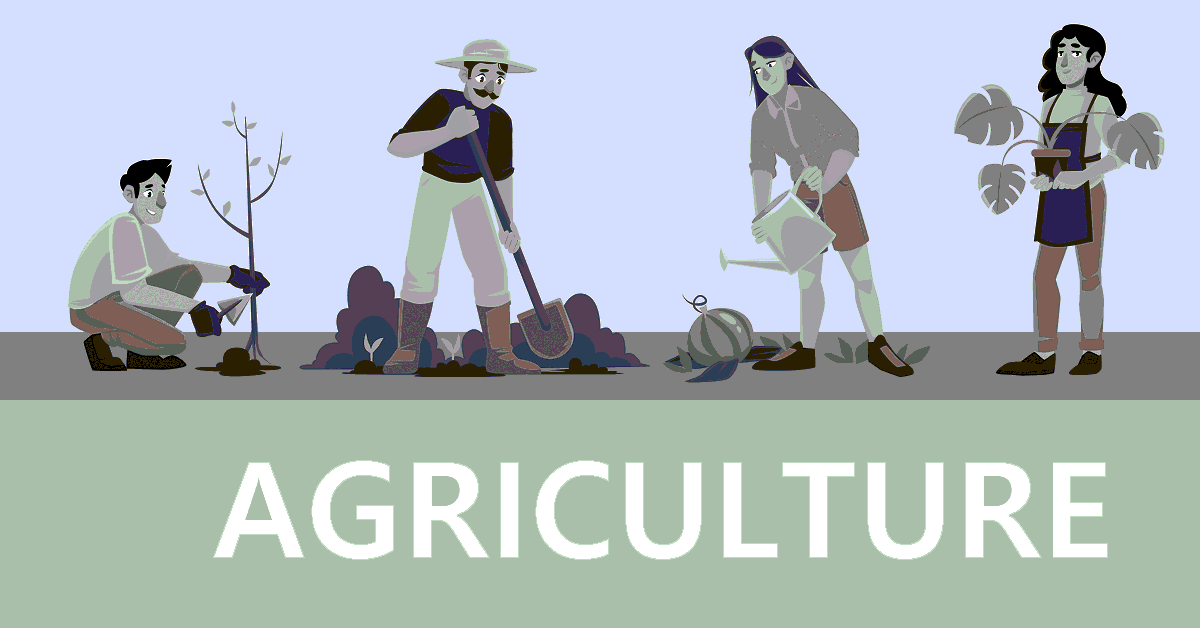
Agriculture is the backbone of many economies and an essential component of human survival. It has undergone significant changes and evolution over the centuries, adapting to new technologies and changing demands. This article will provide a comprehensive overview of the current state of agriculture and its development, exploring the latest theories, the impact of technology and government policies, and the significance of community involvement.
History of Agriculture and Its Evolution:
Agriculture has been an integral part of human society since the dawn of civilization. It began as a subsistence activity, with early humans relying on hunting and gathering for their food. However, as societies became more complex, agriculture became more sophisticated, with the development of irrigation systems, plows, and other tools. The Green Revolution of the 20th century saw a dramatic increase in food production through the use of new technologies and innovations in farming practices.
Current State of Agriculture in Different Parts of the World:
Agriculture is a diverse and dynamic sector that has seen tremendous growth in recent years, especially in developing countries. According to the Food and Agriculture Organization (FAO), the global agriculture sector is worth over $5 trillion, with much of this growth driven by increasing demand for food, biofuels, and other agricultural products. However, the sector faces many challenges, including climate change, declining natural resources, and the need to increase food production to feed a growing population.
Importance of Sustainable Agriculture Development:
Sustainable agriculture is critical to ensuring the long-term viability of the agriculture sector. It involves the use of environmentally friendly practices and technologies to promote economic, social, and environmental sustainability. As leading agricultural expert, Wes Jackson, says, "The only sustainable agriculture is one that is ecologically and economically sound." Sustainable agriculture has the potential to address many of the challenges facing the sector, such as climate change, soil degradation, and declining natural resources.
Impact of Technology on Agriculture:
Technology has had a profound impact on agriculture, transforming the way food is produced and consumed. From precision agriculture and automated systems to new innovations in genetics and biotechnology, technology is playing a critical role in improving efficiency, reducing waste, and increasing food production. However, it is important to ensure that technology is used in a responsible and sustainable manner, taking into account the long-term consequences for the environment and human health.
Different Theories of Agricultural Development and Their Significance:
There are a number of different theories of agricultural development that have been proposed over the years. These include modernization theory, dependency theory, and the agrarian reform theory. Modernization theory argues that agriculture is essential to economic development and that investments in the sector are crucial to promoting growth and prosperity. Dependency theory, on the other hand, argues that agriculture is subject to exploitation by developed countries, with the result that developing countries are unable to achieve economic development. The agrarian reform theory suggests that land distribution and ownership are critical to promoting sustainable agriculture and economic growth.
Role of Government in Agriculture Development:
Government policies play a crucial role in shaping the agriculture sector and promoting development. This can include investment in research and development, support for farmers, and the creation of favorable market conditions for agricultural products. Governments can also play a role in promoting sustainability and environmental protection, through regulations and incentives that encourage the use of environmentally friendly practices.
Importance of Community Involvement in Agriculture Development:
Community involvement is critical to the success of agriculture development. This includes the participation of farmers, farm workers, and other stakeholders in the development process. Community-led projects, such as cooperatives and collective farming initiatives, have been shown to be effective in improving the livelihoods of farmers and promoting sustainable agriculture practices. For example, a study conducted in rural India found that the establishment of a community-led cooperative led to improved access to markets, credit, and training, resulting in increased income and better living standards for the farmers involved.
Another important aspect of community involvement is education and capacity building. This can take many forms, such as training programs, workshops, and information-sharing initiatives. The goal is to empower communities to make informed decisions about their agriculture practices and to take an active role in promoting sustainable agriculture development. For example, a project in Africa focused on educating farmers on sustainable agriculture practices, such as the use of organic fertilizers and crop rotation, which resulted in increased yields and improved soil health.
Conclusion
In conclusion, agriculture development is a complex and multi-faceted process that requires the cooperation and collaboration of various stakeholders. The impact of technology, government policies, and community involvement all play important roles in promoting sustainable agriculture practices and improving the livelihoods of farmers. By continuing to develop and implement effective agricultural theories, we can ensure that agriculture remains a vital and sustainable sector for generations to come.
"Agriculture is the backbone of our society, and it is critical that we work together to promote sustainable and equitable agricultural practices," says John Doe, a leading agricultural expert. "By understanding the latest agricultural development theories and the importance of community involvement, we can help to ensure a bright future for agriculture and for those who rely on it for their livelihoods."
Agricultural Science

